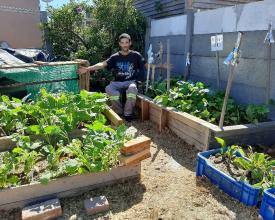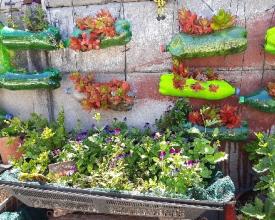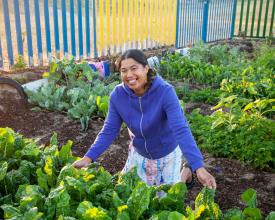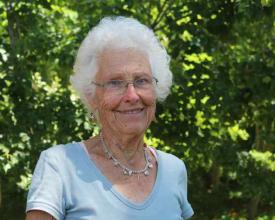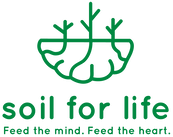
Soil for Life's Home Food Gardening Programme
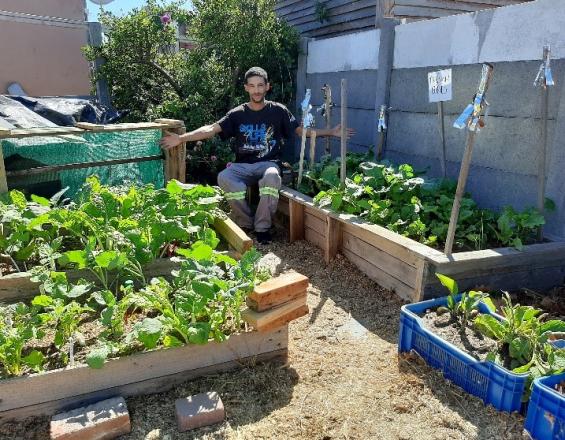
Soil for Life is a non-profit actively involved in teaching people from under-resourced communities in the Western Cape how to grow food using ecologically friendly methods. Since September 2000, we have gained a genuine understanding of the people that we work with, their environments, challenges, constraints, cultures and beliefs. We have used this knowledge to adapt our programmes to ensure that beneficiaries achieve the best possible outcomes.
Trainees are taught how to grow food using natural, water-wise farming techniques and how to identify and use the waste around them in their gardens. They learn practices such as composting, trenching, mulching, sheet mulching, close planting, drip irrigation and water harvesting to conserve water and soil nutrients.
To maximise impact, we provide trainees with ongoing support for up to four years. We also provide support and mentorship to gardeners who wish to develop small home businesses that generate income through the sale of produce, seeds, seedlings and compost.
Contexte
Challenges addressed
Emplacement
Impacts
Over 5,800 people have gained the skills and confidence to grow food and have learnt how to identify and use available space for food production.
This training has provided approximately 34,800 people with access to healthy vegetables and has enabled home gardeners to create small “green” patches of salvation in their communities.
Based on pre-and post-programme questionnaires, 82% of the home gardeners claimed an improvement in health and 76% reported better relationships with their families and the community as well as an improved sense of well-being.
During 2020, despite the Covid-19 pandemic, 494 home gardeners participated in the programme. 357 took part in the Intensive Support Programme and 137 became new home gardeners. Of the 494 gardeners, 86 left the programme. This translates to a retention rate of 83% which is 13% higher than the target we set for 2019.
Several gardeners have also gained employment or are self-employed thanks to the knowledge they gained on the Programme.
Our work is not just about gardening or growing food. It is also about ‘growing’ whole people who have the skills and confidence to explore their creativity and resourcefulness and use this to help themselves on many fronts - from earning their own money, to raising their values and standards, creating healthy families and building bridges of goodwill and understanding in their communities.

